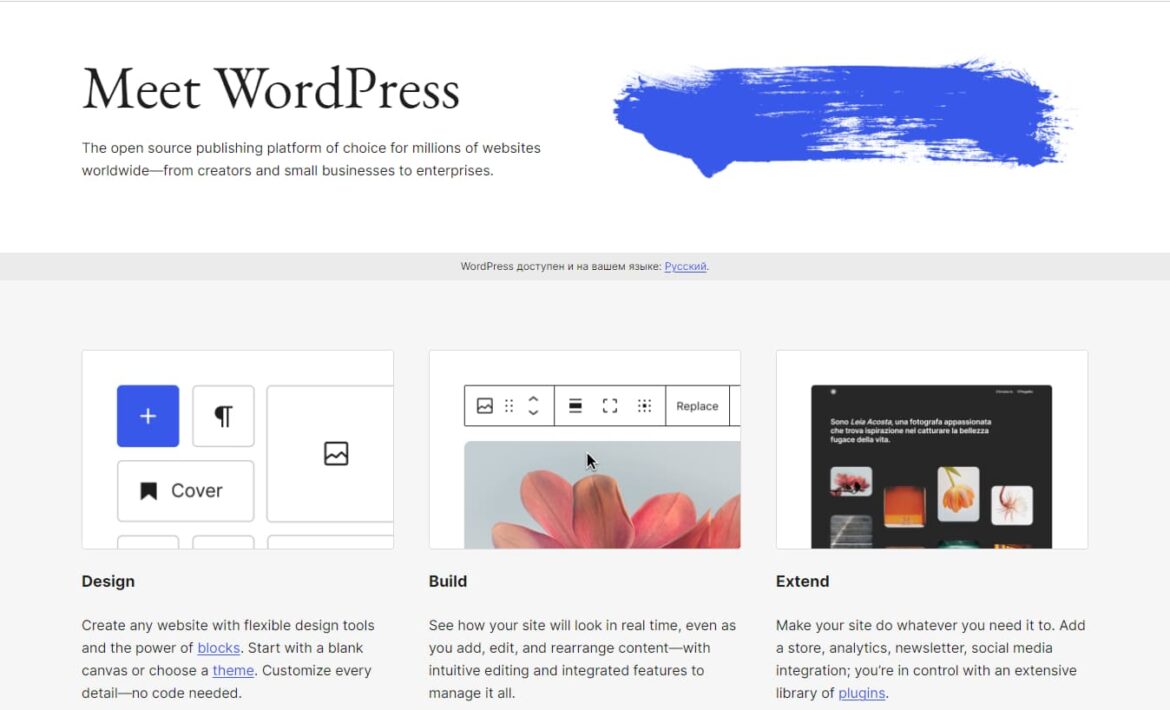When it comes to enterprise web development, choosing the right platform can be a game-changer. Two prominent options are Java and WordPress, each with its own unique strengths and weaknesses. One of the significant advantages of both Java and WordPress for enterprise solutions is the availability of professional developers. Whether you choose Java or opt for enterprise WordPress development, it’s crucial to understand that both platforms can leverage expansive development communities and a wealth of resources to streamline complex projects.
This post will help you decide which platform is best suited for your enterprise needs.
Java for Enterprise Web Development
Java is a high-level, object-oriented programming language developed by Sun Microsystems in 1995. Designed to have as few implementation dependencies as possible, Java enables developers to write code that can run on any device equipped with the Java runtime environment (JRE). This platform-independent nature makes Java a popular choice for developing enterprise-level applications that demand robust performance, scalability, and security.
Many renowned companies rely on Java for their critical business operations.
For instance, LinkedIn uses Java EE (Enterprise Edition) for its backend infrastructure, ensuring seamless communication between millions of users. Even tech giants like Amazon harness Java’s capabilities to support various functionalities across their ecosystem. The widespread adoption of Java by such prominent organizations underscores its reliability and effectiveness in handling complex enterprise requirements.
Advantages of Java for Enterprise Development
In this section, we will delve into the advantages of using Java for enterprise web development. Java is renowned for its versatility and is capable of supporting a wide range of functionalities. By exploring its key strengths, we aim to provide a clear understanding of why many large-scale enterprises choose Java to power their web applications.
1. Complexity and Customization
Java is a powerful programming language that excels in building complex, custom enterprise solutions. It allows for:
- high customization: create tailored software that precisely meets enterprise requirements
- scalability: handle large-scale applications with ease, supporting thousands of transactions per second
- security: robust security features that ensure enterprise data protection
2. Application Development
Java is not limited to web development; it is also a strong contender for creating enterprise-level applications. Java’s cross-platform compatibility means that its applications can run on various platforms without modification.
3. Extensive Libraries and Frameworks
Java boasts a vast collection of libraries and frameworks that simplify and expedite the development process. Examples of key libraries and frameworks include:
- Spring Framework: facilitates efficient component management and dependency injection
- Hibernate: eases the complexities of database interaction through its powerful Object-Relational Mapping (ORM) capabilities
- Apache Struts: aids in creating maintainable enterprise-level applications by offering a robust Model-View-Controller (MVC) architecture
Disadvantages of Java for Enterprise Web Development
While Java offers a plethora of benefits for enterprise web development, it is not without its drawbacks. In this part, we will discuss some of the limitations and challenges associated with using Java. Understanding these disadvantages is crucial for making an informed decision about whether Java is the right choice for your enterprise needs.
1. Necessity to Code
Building a website or software with Java typically requires professional developers who are proficient in Java programming. This means:
- higher costs: professional assistance can be expensive
- longer development time: complex projects may take longer to complete
2. Content Management
Once the website is live, managing the content isn’t straightforward. Non-developers may find it challenging to make changes without technical support.
WordPress for Enterprise Web Development

In this section, we will explore the advantages and potential drawbacks of using WordPress for enterprise web development. While traditionally known as a blogging platform, WordPress has evolved significantly and now offers robust solutions for large-scale businesses. By examining enterprise WordPress development, we aim to highlight how it can provide flexibility, ease of use, and a wide array of plugins and themes, making it a viable choice for enterprise-level solutions.
Advantages of Enterprise WordPress Development
Let’s delve into the specific advantages of using WordPress for enterprise web development. We’ll examine how these features can enhance flexibility, streamline workflows, and provide a scalable solution for various business needs.
1. Ease of Use
WordPress is renowned for its user-friendly interface, making it an excellent choice for enterprises that want to manage content themselves. Its robust platform offers a variety of features that cater to both beginners and experienced users alike:
- no coding required: users can create and update content without any coding knowledge, thanks to its intuitive drag-and-drop editor and customizable templates. This empowers businesses to maintain their websites internally without the need for a dedicated development team.
- quick setup: setting up a WordPress site is relatively fast and straightforward. With its extensive library of themes and plugins, users can easily tailor their site to meet specific business needs and aesthetics. Furthermore, the installation process is streamlined, allowing enterprises to get their websites up and running with minimal downtime.
In addition to these features, WordPress offers a supportive community and numerous online resources, making it easier for users to find solutions and advice for any challenges they may encounter.
2. Content Management
WordPress shines in content management by providing a user-friendly experience and extensive customization options:
- intuitive dashboard: the platform offers an easy-to-navigate dashboard that allows users to effortlessly add, edit, and organize their content. This feature ensures that even those with minimal technical expertise can manage their websites effectively.
- plugins: with thousands of plugins and themes available, WordPress enables users to enhance both the functionality and aesthetics of their sites. Plugins can be used to add features such as contact forms, SEO tools, and social media integration, while themes allow for a wide range of visual styles and layouts. This flexibility makes WordPress a versatile choice for any type of website.
For instance, WooCommerce is a powerful eCommerce plugin that enables enterprises to transform their WordPress sites into fully functional online stores. It provides extensive customization options and integrates seamlessly with various payment gateways and shipping providers.
Disadvantages of WordPress for Enterprise Web Development
Let’s move on to the disadvantages of using WordPress for enterprise web development. While WordPress offers numerous benefits, it’s essential to consider the potential challenges and limitations that could impact its suitability for large-scale business applications. Understanding these drawbacks will help you make a more informed decision about whether WordPress is the right platform for your enterprise needs.
1. Complexity Limitations
While WordPress is highly versatile, it has limitations for extremely complex or custom enterprise solutions:
- customization limits: customizing beyond a certain point may require professional development
- performance issues: high traffic and large-scale applications might affect performance unless properly optimized
2. Application Development
WordPress is primarily a content management system (CMS) and isn’t designed for extensive application development:
- limited API Support: less robust APIs compared to Java
- not ideal for standalone applications: WordPress is better suited for content-centric websites rather than standalone applications
Conclusion
In summary, both Java and WordPress have their strengths and are suited for different types of enterprise needs. If you need a highly customizable, secure, and scalable solution, Java is the way to go. However, if ease of use and content management are your priorities, WordPress is the better choice.
Need expert advice? Contact us today to discuss your specific enterprise requirements and find the perfect solution for your business.
